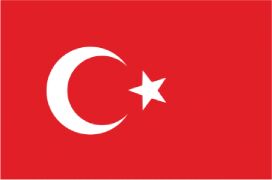Turkish authorities are continuing to search for coup participants and others with alleged links to the FETÖ, and may detain, arrest, prosecute, fire or suspend more people. These actions have been the subject of criticism by the EU and others and may lead to strain in the Republic’s relationships with other countries.
The Republic had been a parliamentary democracy since its formation in 1923, during which period the Republic had sixty-six governments, until the implementation of the new executive presidential system in 2018. The executive presidential system concentrates significant power in the office of the President, including the ability to appoint and dismiss ministers, vice presidents, high level diplomats and public officers and allows the winner of a presidential election to assume control of the government.
On June 24, 2018, general and presidential elections were held to elect the first president and deputies, marking the beginning of the transition towards an executive presidential system. According to the official results announced by the Supreme Election Council on July 4, 2018, President Recep Tayyip Erdogan won an absolute majority in the presidential election with 52.59% of the vote.
In the May 14, 2023 presidential and parliamentary elections, Recep Tayyip Erdogan had 49.52%, Kemal Kılıçdaroğlu had 44.88% and Sinan Oğan had 5.17% of the votes. As no candidate received more than 50% of the valid votes to win directly, a second round of elections, between Recep Tayyip Erdogan and Kemal Kılıçdaroğlu was held on May 28, 2023. On May 28, 2023, Recep Tayyip Erdogan was re-elected as President by receiving 52.18% of the vote. Kemal Kılıçdaroğlu received 47.82% of the votes.
Both presidential and parliamentary elections are to be held every five-years on the same date. The next presidential and parliamentary elections are scheduled to be held on May 14, 2028. On March 8, 2024, President Recep Tayyip Erdogan announced that he will not run for reelection when his term comes to an end in 2028.
On March 31, 2024, local elections in the Republic were held throughout the country’s 81 provinces. On May 7, 2024, the final results of the elections were published in the Official Gazette No.32539. According to the final results, while Republican People’s Party (CHP), Justice and Development Party (AKP), Peoples’ Equality and Democracy Party (DEM Party), Nationalist Action Party (MHP) and New Welfare Party (YRP) won 35, 24, 10, eight and two provincial municipalities respectively, İYİ Party and Great Unity Party (BBP) each won one provincial municipality. Furthermore, the main opposition party, CHP, won in the biggest Turkish cities such as İstanbul, İzmir, Bursa and the capital Ankara. In particular, the party’s candidates in Türkiye’s largest city İstanbul and capital Ankara, Ekrem İmamoğlu and Mansur Yavaş, were re-elected.
Local elections in the Republic are held every five years. The next local election is scheduled to be held on March 25, 2029.
The Turkish military establishment has historically been an important factor in Turkish government and politics, interfering with civilian authority four times between 1959 and 2021 (in 1960, 1971, 1980 and 2016).
Each time, the military withdrew after the election of a new civilian government and the introduction of changes to the legal and political systems.
Any further negative changes in the political environment of the Republic may affect the stability of the Turkish economy or its institutions. In addition, any instability in the Turkish economy and financial system may adversely affect the Republic’s credit quality.
Furthermore, the failure of the Turkish Government to implement its proposed economic and financial policies, including those set forth in the Republic’s Economic Reform Agenda and the 2023-2025 Medium Term Program, may also adversely affect the Turkish economy and the Republic’s credit quality. For additional information, see “Recent Developments and Summary”.
S-12
